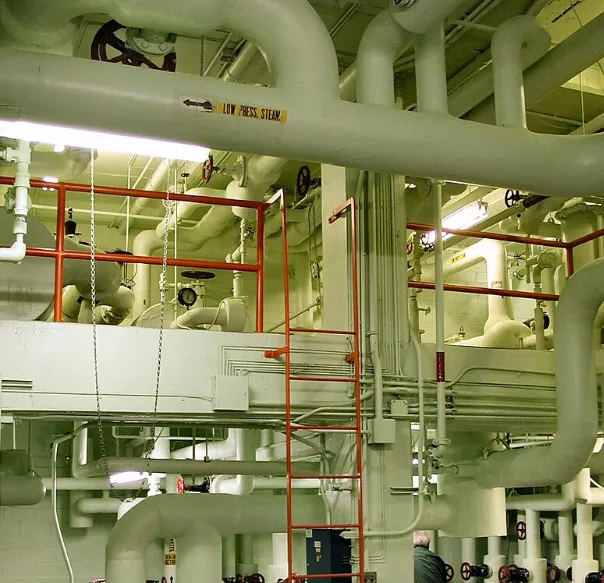Inside Factories: What Industrial Plumbers Actually Do
Industrial plumbers work in environments most people never see—massive facilities where pipes carry everything from superheated steam to corrosive chemicals. If you picture a plumber fixing residential sinks and toilets, you need to expand that image dramatically. Industrial plumbers keep the backbone of modern manufacturing running, and their work is far more complex and critical than most people realize.
Also Read: Why Wholesale Kitchen Cabinets in Virginia Offer Top Quality & Value
The Real Scope of Industrial Plumbing
Walk into any manufacturing facility, refinery, or power plant, and you’ll find miles of piping systems. Industrial plumbers install, maintain, and repair these networks that transport water, steam, gases, chemicals, and waste products. They work with pipe diameters ranging from half an inch to several feet across, handling pressures that would burst household plumbing instantly.
Unlike residential plumbers who work on potable water and drainage, industrial plumbers deal with process piping—systems that directly support manufacturing operations. When an industrial plumber makes a mistake, entire production lines shut down. When they excel at their job, factories run smoothly and safely, producing everything from pharmaceuticals to petroleum products.
A Day in a Manufacturing Plant
Industrial plumbers in factories start their mornings reviewing work orders and safety briefings. Safety dominates every decision because these environments present serious hazards. They work around heavy machinery, high temperatures, toxic chemicals, and confined spaces.
Mike Torres, an industrial plumber with fifteen years at an automotive manufacturing plant, describes his typical routine: “I might spend the morning replacing a section of cooling water piping for injection molding machines, then switch to troubleshooting a compressed air leak that’s costing the plant thousands in wasted energy. Every day brings different challenges.”
These plumbers read complex blueprints and isometric drawings that show piping layouts in three dimensions. They must understand which materials work with specific fluids—stainless steel for corrosive chemicals, carbon steel for steam, copper for certain gases, and specialized plastics for ultra-pure water systems in clean rooms.
The work requires multiple skills. Industrial plumbers cut and thread pipe, weld joints, install flanges and gaskets, hang pipe supports from structural steel, and test systems for leaks using pressure testing equipment. They also install and maintain pumps, valves, strainers, and pressure relief devices that keep systems operating safely.
Life Inside Refineries and Petrochemical Plants
Refineries present some of the most demanding environments for industrial plumbers. These facilities process crude oil into gasoline, diesel, and countless other products through complex chemical reactions that require precise temperature and pressure control.
Industrial plumbers in refineries work with piping systems that carry flammable and explosive materials. They follow strict hot work permits, wear fire-resistant clothing, and use specialized tools that won’t create sparks. Many systems operate at temperatures exceeding 1000 degrees Fahrenheit and pressures reaching thousands of pounds per square inch.
During planned shutdowns—called turnarounds—refineries bring in hundreds of additional industrial plumbers. These intense periods involve replacing corroded piping, upgrading systems, and performing maintenance that can’t happen during normal operations. Plumbers work twelve-hour shifts, sometimes for weeks straight, earning premium pay for their expertise and dedication.
“Refinery work demands absolute precision,” explains Sarah Mitchell, who has worked turnarounds for a decade. “You’re often working at heights on scaffolding, fitting pipes that must align perfectly. There’s no room for error when you’re dealing with high-pressure hydrocarbons.”
Power Plant Operations
Power plants—whether coal, natural gas, nuclear, or renewable energy facilities—rely heavily on industrial plumbers to maintain their operations. These facilities use enormous quantities of water for cooling and steam generation, creating complex piping networks that require constant attention.
Industrial plumbers in power plants maintain boiler feed water systems, condensate return lines, cooling tower piping, and waste heat recovery systems. They work closely with boiler operators and mechanical maintenance teams to ensure the facility generates electricity reliably and efficiently.
Nuclear power plants require industrial plumbers with additional security clearances and specialized training. These professionals work on systems classified by their proximity to radioactive materials, following procedures that ensure containment integrity and worker safety.
Specialized Skills That Set Industrial Plumbers Apart
Industrial plumbers develop expertise that residential and commercial plumbers rarely encounter. They learn to work with exotic materials like Hastelloy, Inconel, and titanium alloys used in extreme conditions. They master advanced welding techniques including TIG and orbital welding that produce X-ray quality joints for critical applications.
Many industrial plumbers obtain certifications in non-destructive testing methods, allowing them to inspect welds and pipes for defects without damaging them. They understand how thermal expansion affects piping systems and design pipe supports that accommodate movement while preventing stress failures.
Industrial plumbers also troubleshoot complex problems. When a system underperforms, they analyze pressure gauges, flow meters, and temperature readings to identify restrictions, cavitation, or other issues affecting performance. This detective work saves companies millions by preventing equipment damage and production losses.
The Physical and Mental Demands
This career requires excellent physical condition. Industrial plumbers climb ladders, work in confined spaces, lift heavy materials, and spend hours in uncomfortable positions. They endure extreme temperatures—sweltering heat near furnaces and bitter cold in refrigeration facilities.
The mental demands match the physical challenges. Industrial plumbers must memorize safety procedures, understand fluid dynamics principles, interpret technical drawings, and make critical decisions that affect worker safety and production continuity. They constantly learn new technologies as industries adopt automated valves, advanced materials, and digital monitoring systems.
Why This Work Matters
Industrial plumbers form the essential infrastructure team that keeps modern civilization running. They ensure factories produce the goods we use daily, refineries provide the fuel that powers transportation, and power plants deliver electricity to homes and businesses. Their expertise, dedication, and skill make them indispensable to industrial operations worldwide.
For those seeking a challenging, well-compensated career that combines physical work with technical problem-solving, industrial plumbing offers remarkable opportunities in environments where every day brings new challenges to overcome.







